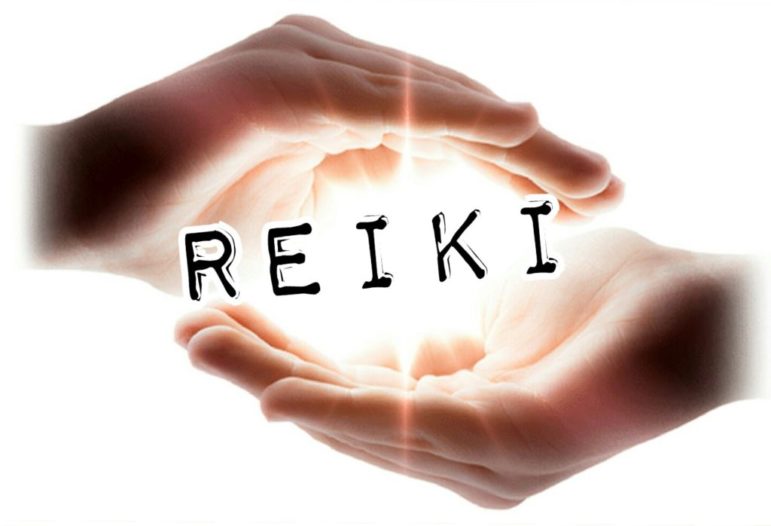BOSTON – Bill S. 168 that is currently being considered with the objective of deterring human trafficking and providing more safety to the public when seeking the services of a massage therapist or “bodyworker” contains some potentially problematic language and definitions.
“Bodywork”, “bodyworks” or “bodywork therapy”, the practice of a person who uses touch, words or directed movement to deepen awareness of patterns of movement in the body, or the affectation of the human energy system or acupoints or Qi meridians of the human body while engaged within the scope of practice of a profession with established standards and ethics; provided, however, that such services shall not be designated or implied to be massage or massage therapy; provided further, that “bodywork”, “bodyworks” and “bodywork therapy” shall include, but not be limited to: the Feldenkrais Method; Reflexology; the Trager Approach; Ayurvedic Therapies, Rolf Structural Integration, Polarity or Polarity Therapy; Polarity Therapy Bodywork; Asian Bodywork Therapy that does not constitute massage as defined in this chapter; Acupressure; Jin Shin Do; Qi Gong; Tui Na; Shiatsu; Body/Mind Centering; and Reiki; and provided further, that “bodywork”, “bodyworks” and “bodywork therapy” shall not include diagnoses, the prescribing of drugs or medicines, spinal or other joint manipulations or any services or procedures for which a license to practice medicine, acupuncture, chiropractic, occupational therapy, physical therapy or podiatry is required by law.
Practices like Reiki, and Qi Gong, frequently involve little, if any, actual physical touching between an instructor/practitioner in practice, and in many cases are part of a defined spiritual practice.
The term “Body/Mind Centering,” [minus the trademark ®], is so broad and ill-defined within the bill that it could conceivably be extended to include yoga, a variety of martial arts, and virtually any “active” meditation practice. It could even possibly be extended to other religious practices that are considered healing–like rites of purification, initiation, or questing.

Equally of concern is the proposed composition of a board of seven members: three licensed massage therapists, two “bodyworkers,” one representative of law enforcement with experience in human trafficking, and one consumer who is familiar with massage and “bodywork.”
(a) There shall be within the division of professional licensure a board of registration of massage therapy and bodyworks. The board shall consist of 7 members who shall be appointed by the governor for terms of 3 years, 3 of whom shall be licensed massage therapists who have been actively engaged in the practice of massage therapy in the commonwealth for not less than 5 years immediately before their appointments, 2 of whom shall be licensed bodywork therapists or bodyworkers who have been actively engaged in the practice of bodyworks in the commonwealth for not less than 5 years immediately before their appointments; 1 of whom shall be a law enforcement representative whose area of focus is human trafficking and 1 of whom shall be a consumer who is familiar with the massage therapy or bodyworks therapy fields. The members shall be residents of the commonwealth and shall be subject to chapter 268A.
The disciplines outlined in Bill S. 168 amount to over 200 different varieties of practice. To have one governing body oversee all of these various practices would require members to have in-depth knowledge of them collectively.
In addition to practitioners having to rely on a governing board that may have little understanding of their actual discipline, the further implications of Bill S. 168 would be requiring practitioners to pay additional fees for licensing and certification to the state.

Image credit: queeselreiki – WikiCommons
It is difficult to imagine how the practice of Reiki or Qi Gong could routinely be tied to human trafficking. While there are a number of cases nationwide on any given year involving businesses that advertise themselves as “spas” that were actually fronts for prostitution and where human trafficking was involved, few had any connection to Reiki. And none involved the practice of Qi Gong.
Unfortunately, it has not stopped other states from passing legislation to regulate such practices. Currently, New Jersey and Florida require licensing for energy workers, and Oregon and Wisconsin require credentialing. Other states range from having no licensing to requiring practitioners to seek an exemption from state massage licensing boards.
A petition on Change.org opposing Bill S. 168 currently has just under 8,000 signatures. The petition highlights the impacts the bill would have on not only holistic practitioners but also on those who rely on alternative and complementary holistic health practices.
Bill S. 168 could potentially force some practitioners to seek additional education that may have little or no bearing on their practice in order to qualify or meet the standards being imposed by the state in order to secure licensing.
The absence of any mention of cultural, spiritual, or religious relevance is both troubling and revealing. While there is currently no exemption on the basis of a religious or spiritual basis included within the bill, it is possible that the language could be changed in any number of ways that might protect esoteric practitioners.
Guidelines and protocols for practitioners are important in protecting and safeguarding consumers, however, Bill S. 168 may cross a line by attempting to bring so many varied holistic and even esoteric practices together under one heading. To apply such standards under the banner of a solution for human trafficking may be problematic for religious and spiritual practices and communities.
A public hearing is scheduled for Monday, October 28 in Boston. The results of that hearing will likely influence how Bill S. 168 moves forward.
TWH will continue to follow this story.
The Wild Hunt is not responsible for links to external content.
To join a conversation on this post:
Visit our The Wild Hunt subreddit! Point your favorite browser to https://www.reddit.com/r/The_Wild_Hunt_News/, then click “JOIN”. Make sure to click the bell, too, to be notified of new articles posted to our subreddit.
